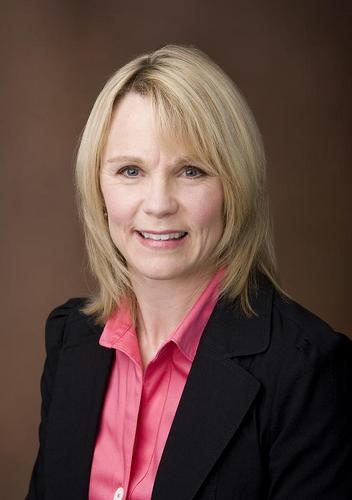With the highly anticipated women's gymnastics team final tonight on NBC, we talk to one of NBC's lead gymnastics analysts, Elfi Schlegel. Along with partner Tim Daggett, Elfi has been a fixture in the gymnastics booth for a generation. We talk with Elfi about her experience as an announcer and what being such a pivotal part of NBC's Olympic team has meant to her.
Q: You've been such an integral part of NBC's gymnastics coverage, did you imagine still being a part of the Games in this capacity as an athlete?
A: When you’re competing, your life revolves around doing what you do best. When the U.S. boycotted the 1980 Olympics, I couldn’t do what I did best. When that chance was ripped away from me, all I could think about was that one day, I would go to the Olympics and really experience it. I did that in 1988 working with CBC in Canada. I was eight years removed from the moment that was supposed to be mine, but I welcomed the new path I was taking. It was emotional.
Q: What's your chemistry like in the booth with Al & Tim working the Olympics with them once again?
A: Fantastic. I mean that sincerely. Tim and I work well together. We like each other. People tell us we seem like an old married couple, which is what it’s like up there in the booth. I will always know him after our broadcast days are over. And when Al joined us, we all gelled. We really enjoyed working together, and Al wanted to hang out with us and really get to know our personalities.
Q: What aspect of the competition are you most looking forward to this year?
A: I really look forward to telling the athletes’ stories. You have this preconceived idea of how the Olympics should be before you get there, and then you are reminded that anything can happen. It’s moments like that, that I remember. Standing in the arena, feeling the passion, being able to say “I was a part of that moment.” It’s not just about the gold medal. It’s about the work these athletes did to get to where they are now—what it took to call themselves an Olympian.
Q: What are the biggest challenges in preparing for calling an Olympic sport and during the event itself?
A: My friends always ask me before an Olympics, “Have you started to study?” It might seem like a challenge to learn all the names and stats, but I’m so involved in the gymnastics world that I’m never not going to know what’s going on. The challenge lies in relaying that information to the audience. You have to make them understand the sport, understand how it's judged, and the difference between a winning and losing routine. Gymnastics is so subjective and there’s a challenge in that.
Q: How much of the Olympics are you able to take in as a fan? What else will you try and take part in outside the booth in London?
A: Not much. My first priority here is my job, and I take that seriously. My father taught me to work first, then play. I’ve grown up with those values. I’m such a lucky person to be able to enjoy my work and witness such greatness at each Olympics. Toward the end of the Games, my family is coming to London, which will be fun. I’ll go sightseeing with them.
Q: How do the Games in London compare to other Olympic Games?
A: You know, I don’t like to compare. It’s always new. I always go into each Olympics ready for a new experience and always try to take a little something away from those experiences. Mostly it’s the people, the athletes. They’ve worked so hard. It’s hard every four years when you see the team you’re cheering for not make it, for them not to fully achieve their dream. You just have to look forward. You have to hope that they will have their Olympic moment.

Comments are closed.